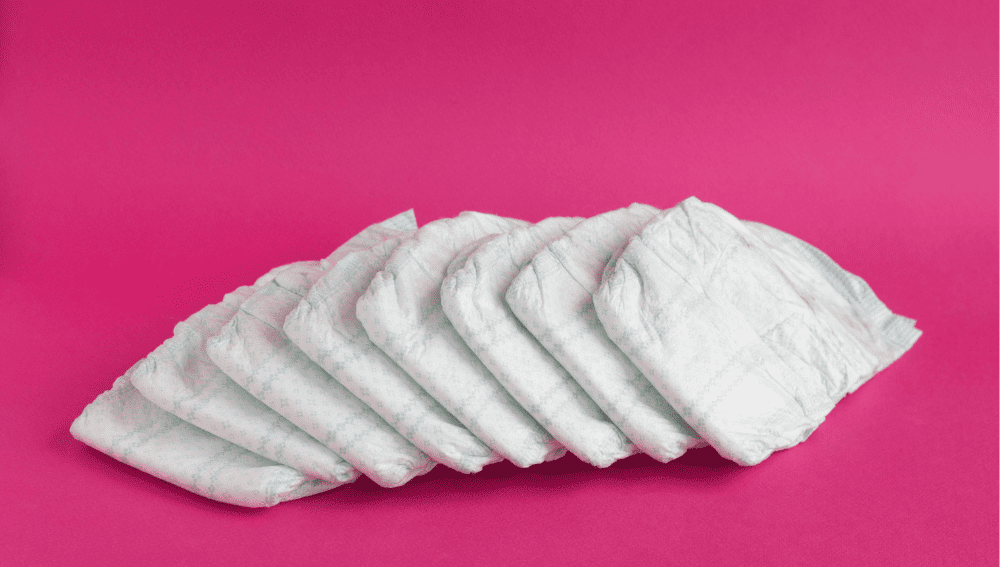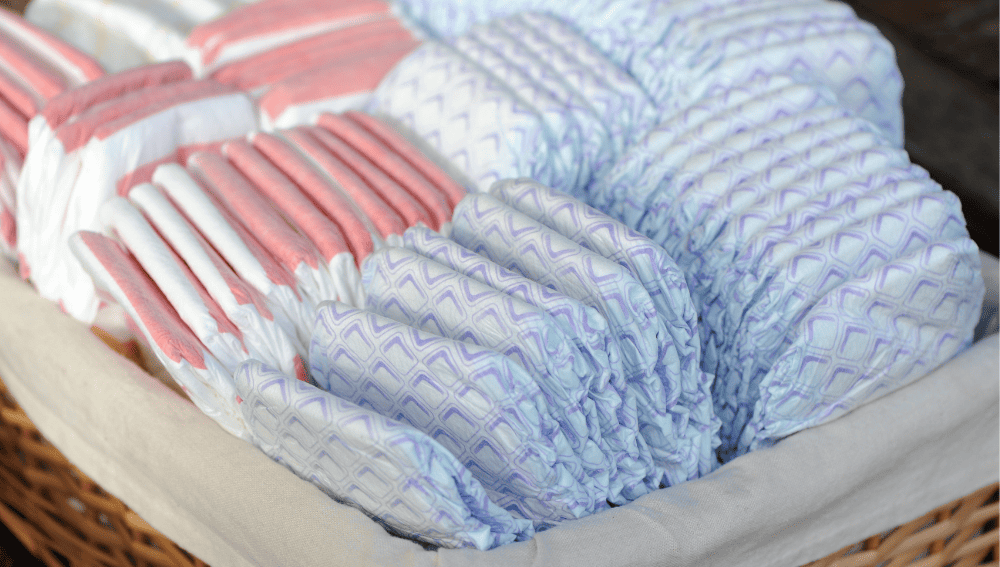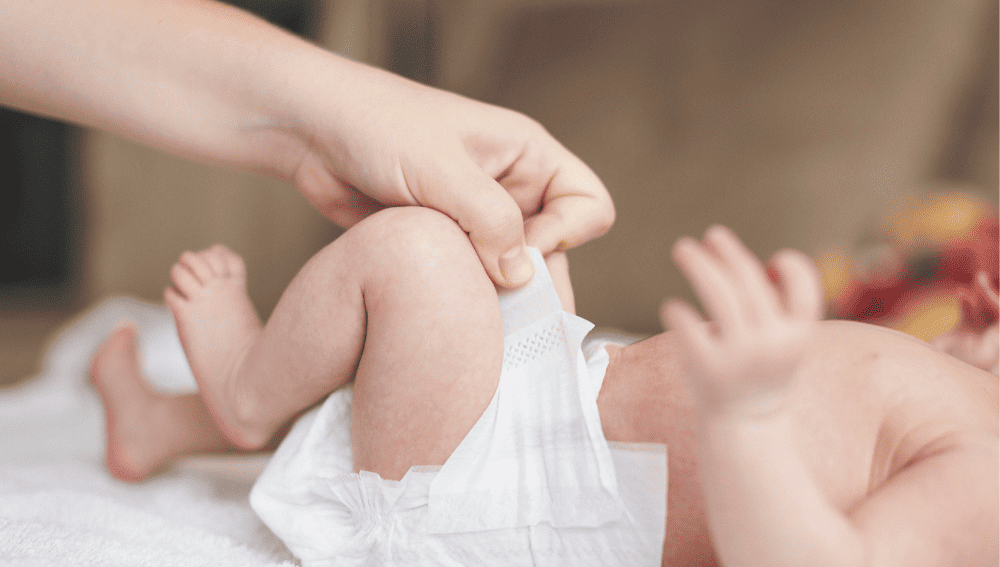Diapers are a staple in every parent’s life, but have you ever stopped to consider if they expire? Many parents may assume that diapers have an indefinite shelf life, but the truth is that they do have an expiration date.
Understanding the lifespan of diapers is important for both your baby’s health and your wallet.
Do diapers expire? The short answer is yes. The materials used in diapers can break down over time, causing them to lose their effectiveness.
Additionally, the adhesives and elastic used in diapers can dry out and become less sticky or stretchy, resulting in leaks and discomfort for your baby. It’s important to know how long your diapers are good for and how to properly store them to ensure they last as long as possible.
Key Takeaways
- Diapers do expire and it’s important to understand their lifespan.
- Proper storage can help extend the life of your diapers.
- Expired diapers can result in leaks and discomfort for your baby.
Understanding Diapers
Diapers are an essential baby product that helps keep infants dry and comfortable. They come in two main types: disposable diapers and cloth diapers.
Disposable diapers are made of a paper product with a plastic outer layer, while cloth diapers are made of fabric. Both types have an absorbent core that is designed to hold urine and feces.
The absorbency of diapers is determined by the materials used in their construction. Super absorbent polymers (SAPs) are often used in disposable diapers to increase their absorbency. Cloth diapers may also have an absorbent core made of natural or synthetic materials.
Diaper sizes are based on the weight and age of the baby. As babies grow, they will need larger diapers to accommodate their changing size. It is important to choose the right size to ensure a proper fit and prevent leaks.
The components of diapers include adhesives and glue to hold the diaper together, elastic to provide a snug fit, and plastic to create a waterproof barrier. Chemical components may also be used to enhance absorbency or add fragrance.
Popular diaper brands include Huggies, Pampers, Luvs, Honest, Hello Bello, and Dyper. Each brand may use different materials and components in their diapers, but all are designed to provide a comfortable and effective solution for keeping babies dry and clean.
Do Diapers Expire
Diapers are a staple item for parents with infants and toddlers, but do they have an expiration date? The short answer is yes, diapers do expire, and it’s important to pay attention to the expiration date.
An expiration date, also known as a use-by date or shelf life, is the date after which a product is no longer guaranteed to be effective or perform as intended. Diapers are no exception to this rule, and their effectiveness can decrease over time.
Unused diapers typically have a shelf life of about two years, but this can vary depending on the brand and materials used. It’s important to check the expiration date on the packaging before purchasing or using a diaper.
Using expired diapers can lead to leakage and blowouts, which can be messy and inconvenient for both parents and babies. Additionally, expired diapers may not provide the same level of absorbency and comfort as fresh diapers.
To ensure maximum effectiveness and performance, it’s recommended to use fresh diapers within their expiration date. If you have unused diapers that have expired, it’s best to dispose of them and purchase new ones.
In conclusion, diapers do expire, and it’s important to pay attention to the expiration date to ensure maximum effectiveness and performance. Using expired diapers can lead to leakage and blowouts, so it’s best to dispose of them and purchase fresh ones.
Impact of Environmental Factors
The shelf life of diapers can be affected by environmental factors. Exposure to heat, light, humidity, and moisture can all contribute to the degradation of the materials used in diapers.
Direct sunlight and extreme heat can cause the elastic and adhesive components of the diaper to break down more quickly, reducing the effectiveness of the diaper.
High temperatures can also cause the diaper to lose its absorbency, making it less effective at containing moisture. For this reason, it is recommended that diapers be stored in a cool, dry place to help preserve their quality.
Humidity can also play a role in the lifespan of diapers. Excessive moisture can cause mold and mildew to grow on the diaper, which can compromise its integrity. It is important to keep diapers in a dry environment to prevent this from happening.
Overall, it is important to store diapers in a cool, dry place away from direct sunlight and extreme heat. This will help to extend the shelf life of the diaper and ensure that it remains effective at containing moisture.
Changes in Diapers Over Time
Over the years, diapers have undergone significant changes in design, materials, and functionality. Manufacturers have introduced new features and technologies to improve the performance and comfort of diapers.
One of the most notable changes in diapers over time is the use of superabsorbent polymers (SAPs). These materials can hold several times their weight in liquid and help keep babies dry for longer periods.
SAPs have replaced the traditional fluff pulp used in older diapers, which was less effective at absorbing moisture.
Another change in diapers is the use of breathable materials, which help reduce the risk of diaper rash and skin irritation. Modern diapers are made of materials like cotton, bamboo, and microfiber, which are soft, comfortable, and breathable.
This is a significant improvement over older diapers, which were made of plastic and other non-breathable materials.
Over time, diapers may also experience discoloration and yellowing due to exposure to light and air. This is a cosmetic issue and does not affect the performance of the diaper. However, some parents may prefer to use diapers that look clean and white.
Elasticity is another important factor to consider when it comes to diaper performance. Over time, the elastics in diapers may lose their stretch and become less effective at preventing leaks. This can be due to exposure to heat, moisture, or other environmental factors.
Weak adhesive is another issue that can affect the performance of diapers. Over time, the adhesive used to attach the diaper tabs may lose its stickiness and result in the diaper falling off or shifting. This can be due to exposure to heat or moisture.
In summary, diapers have undergone significant changes over time, with improvements in absorbency, breathability, and comfort. While discoloration, elasticity, and weak adhesive may occur over time, these issues do not necessarily affect the performance of the diaper.
Storing Diapers Properly
Proper storage of diapers is important to ensure that they remain safe and effective for use. Here are some tips on how to store diapers properly:
- Store diapers in a cool, dry place: Exposure to heat and humidity can cause diapers to deteriorate faster, reducing their effectiveness. It is recommended to store diapers in a dry place at room temperature.
- Keep diapers away from direct sunlight: Sunlight can also cause diapers to deteriorate faster, so it is important to keep them away from direct sunlight.
- Store diapers in their original packaging: The original packaging of diapers is designed to keep them safe and effective for use. It is recommended to keep diapers in their original packaging until they are ready for use.
- Avoid storing diapers near chemicals: Chemicals such as cleaning products or insecticides can damage diapers, so it is important to store them away from any chemicals.
- Use diapers before their expiration date: Diapers do have an expiration date, so it is important to use them before that date to ensure their effectiveness.
By following these tips, you can ensure that your diapers remain safe and effective for use.
Learn more in a related post Best Diapers for Sensitive Skin 2021 – Comparison & Reviews
Effect on Diaper Quality
The quality of a diaper can be affected by its age and storage conditions. Over time, the materials used in the diaper can break down, leading to reduced absorption and an increased risk of leaks.
One of the main factors that can affect the quality of a diaper is its ability to absorb moisture. As a diaper ages, the materials used in its construction can become less effective at absorbing moisture, which can lead to leaks and discomfort for the baby.
Another factor that can be affected by the age of a diaper is its fragrance or scent. Some diapers have added fragrances or scents to help mask odors, but these can break down over time, leaving the diaper with an unpleasant smell.
In addition to absorption and fragrance, the age of a diaper can also affect the risk of skin rashes or diaper rashes. As a diaper ages, it may become less effective at wicking away moisture from the baby’s skin, which can lead to irritation and rashes.
Overall, it is important to pay attention to the age of your diapers and store them properly to ensure that they maintain their quality and effectiveness.
Eco-friendly and Hypoallergenic Diapers
Many parents are looking for eco-friendly and hypoallergenic diaper options for their babies. These types of diapers are made from plant-based materials and are free from harmful chemicals and fragrances that can cause skin irritation.
Eco-friendly diapers are made from sustainable materials such as bamboo, corn, and wheat. They are biodegradable and compostable, which means they will break down naturally in the environment.
They also use less water and energy during production, making them a more environmentally friendly choice.
Hypoallergenic diapers are made from materials that are less likely to cause skin irritation and allergic reactions. They are free from fragrances, lotions, and other chemicals that can irritate sensitive skin.
Cotton is a common material used in hypoallergenic diapers because it is a natural and breathable fabric.
When choosing eco-friendly and hypoallergenic diapers, it is important to look for certifications such as the Forest Stewardship Council (FSC) and the Global Organic Textile Standard (GOTS).
These certifications ensure that the materials used in the diapers are sustainably sourced and free from harmful chemicals.
Overall, eco-friendly and hypoallergenic diapers are a great option for parents who are looking to reduce their environmental impact and protect their baby’s sensitive skin.
Manufacturing and Packaging
Diaper manufacturers use a variety of materials and processes to create their products. The manufacturing process typically involves the following steps:
- Cutting and shaping absorbent materials such as wood pulp, superabsorbent polymers, and cotton.
- Assembling the absorbent materials into a core and adding a top sheet, back sheet, and fastening system.
- Adding any additional features such as wetness indicators or fragrances.
- Packaging the finished product for distribution.
Packaging is an important part of the manufacturing process, as it helps to protect the diapers from damage and contamination. Many manufacturers use vacuum-sealed packaging to help keep the diapers fresh and clean.
The materials used in the manufacturing process can affect the lifespan of the diapers. For example, diapers made with natural materials such as cotton may be more prone to degradation over time than those made with synthetic materials.
However, most diapers are designed to last for several years when stored properly.
Overall, the manufacturing and packaging processes used by diaper manufacturers are designed to create high-quality products that can withstand the rigors of everyday use.
While the lifespan of diapers may vary depending on a variety of factors, including the materials used and how they are stored, most diapers should remain usable for several years.
Reusing and Donating Diapers
When it comes to diapers, many parents wonder if they can reuse them or donate unused diapers to others in need. The answer is not straightforward, but it is possible in some cases.
Reusing Diapers
In general, it is not recommended to reuse disposable diapers. This is because they are designed to be used once and then thrown away. Reusing them can compromise their absorbency and lead to leaks, which can be messy and uncomfortable for the baby.
However, cloth diapers can be reused if they are properly washed and sanitized. This can save money and reduce waste, making them a more eco-friendly option.
It is important to follow the manufacturer’s instructions for washing and drying cloth diapers to ensure they are clean and safe to use.
Donating Diapers
Donating unused diapers to others in need can be a generous and thoughtful gesture. However, it is important to consider a few factors before doing so.
First, check with local charities or organizations to see if they accept donations of unused diapers. Some may have specific guidelines or restrictions on the types of diapers they can accept.
Second, make sure the diapers are still within their expiration date. Diapers can expire, and using expired diapers can lead to leaks or other issues. The expiration date is usually printed on the packaging or on the diaper itself.
Finally, if you are donating leftover diapers from your own stash, make sure they are clean and free of any damage or defects. It is also a good idea to include any instructions or information about the diapers, such as their size or brand.
Baby Showers
If you are hosting a baby shower, consider asking guests to bring unused diapers to donate to a local charity or organization. This can be a great way to support families in need and reduce waste.
Make sure to communicate any guidelines or restrictions on the types of diapers that can be donated, and provide information on where and how to donate them. You can also consider providing a list of local charities or organizations that accept diaper donations.
Overall, reusing and donating diapers can be a great way to save money, reduce waste, and support families in need. Just make sure to follow the guidelines and recommendations for safe and effective use.
Diapers and Waste Management
When it comes to waste management, diapers can pose a challenge due to their size and composition.
Disposable diapers are made of plastic and absorbent materials, which can take hundreds of years to decompose in landfills. This means that diapers can contribute significantly to the amount of waste in landfills.
However, there are ways to manage diaper waste and extend their life. One option is to use cloth diapers, which can be washed and reused, reducing the amount of waste generated.
Another option is to use biodegradable disposable diapers, which are made from materials that break down more quickly than traditional disposable diapers.
To further extend the life of diapers, it is important to properly dispose of them. This means placing them in a designated diaper pail or bag and sealing them tightly before placing them in the trash.
It is also important to avoid flushing diapers down the toilet, as this can cause blockages in the plumbing system and contribute to pollution in waterways.
In addition to proper disposal, some communities offer diaper recycling programs, which can help divert diapers from landfills and turn them into useful products such as compost or fuel.
These programs may require diapers to be sorted and cleaned before they can be recycled.
Overall, while diapers can pose a challenge for waste management, there are ways to reduce their impact on the environment and extend their life.
By using cloth or biodegradable diapers, properly disposing of them, and participating in recycling programs, individuals can make a difference in reducing diaper waste.
Customer Service and Diaper Companies
When it comes to questions about diaper expiration, it’s always a good idea to reach out to the customer service department of the diaper company in question.
They will be able to provide you with the most accurate and up-to-date information regarding their specific product.
Most major diaper companies have customer service departments that can be reached via phone, email, or online chat. Some companies even have dedicated social media accounts for customer service inquiries.
When contacting customer service, be sure to have the product information readily available, including the brand, size, and lot number. This will help the representative assist you more efficiently.
In addition to answering questions about diaper expiration, customer service representatives can also provide information on product recalls, usage instructions, and any other concerns you may have.
They are there to help ensure that you have the best possible experience with their product.
Overall, reaching out to customer service can be a valuable resource for parents and caregivers who have questions or concerns about diaper expiration or any other diaper-related issues.
Also, read: Kirkland vs Huggies Diapers
Frequently Asked Questions
How long can you keep diapers for?
The length of time that diapers can be kept for depends on the type of diaper and how it is stored. In general, most disposable diapers have a shelf life of around two years if they are kept in a cool and dry place. Cloth diapers can last for much longer if they are well cared for and stored properly.
Do diapers expire?
Yes, diapers can expire. Over time, the materials used to make diapers can break down and lose their effectiveness.
This can lead to leaks and other issues. It is important to check the expiration date on the packaging before using any diapers.
Why do unused diapers get hard?
Unused diapers can become hard over time due to the materials used in their construction. Exposure to air and moisture can cause the diaper to dry out and become stiff. This can make it difficult to use the diaper effectively.
Do swim diapers expire?
Swim diapers do not have an expiration date. However, they should be replaced if they become damaged or if they no longer fit properly.
Do Honest diapers expire?
Yes, Honest diapers can expire. The expiration date can be found on the packaging. It is important to check the expiration date before using any diapers.
Do Coterie diapers expire?
Yes, Coterie diapers can expire. The expiration date can be found on the packaging. It is important to check the expiration date before using any diapers.
Related Post: Can You Use Baby Formula After Expiration Date

Nurse Practitioner at Venus Med Spa




